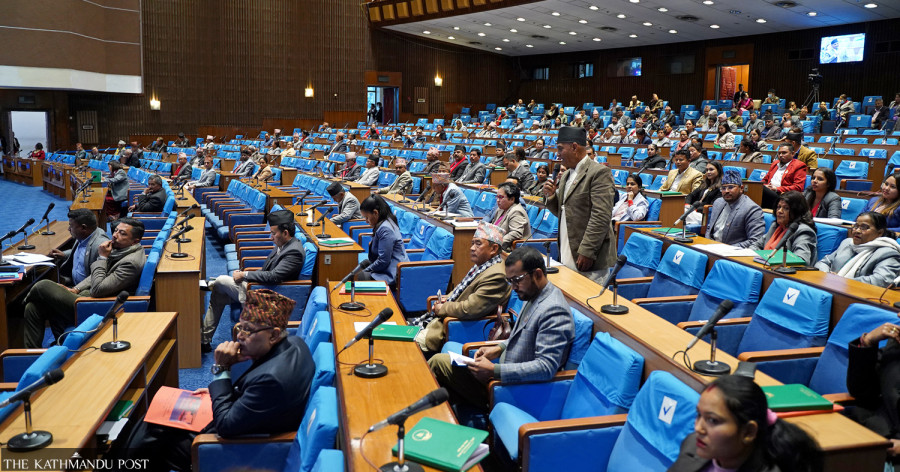Politics
Constitutional Council Act being amended
Bill proposes provisions for six-member council to recommend office-bearer candidates for constitutional bodies by its chair and two members.
Post Report
The government on Friday registered a bill to amend the Constitutional Council (Functions, Duties, Powers and Procedures) Act at the House of Representatives, proposing provisions for the six-member council to recommend office-bearer candidates for constitutional bodies by its chairperson and at least two members.
As per the Constitution of Nepal, the council is headed by the prime minister. The chief justice, Speaker of the House, National Assembly chair, leader of the opposition and deputy Speaker are its members. The Minister for Law, Justice and Parliamentary Affairs takes the seat when the council recommends the names for chief justice.
A clause in the bill says the council meets to take decisions unanimously. If that is not possible, “the meeting shall be deemed to have the required strength if the chairperson and at least 50 percent of the members are present,” reads the amendment bill. It says the chairperson and a majority of at least 50 percent of the members can take a decision if the consensus bid fails.
Currently, the chairperson and four members of the council must be present to convene its meeting. However, the chairperson—prime minister—and three members, which forms a majority of the five, will suffice to hold the meeting. The council can make a decision if the chairs and two of the members present agree on a proposal.
Prime Minister Pushpa Kamal Dahal, who is also the CPN (Maoist Centre) chair, leads the council. Speaker Devraj Ghimire and Hari Krishna Karki, the acting chief justice, Ganesh Timilsina, the National Assembly chairman, and Indira Rana, the deputy Speaker, are its members. However, the leader of the opposition is undecided after the Nepali Congress gave Dahal its vote of confidence.
Among the four members, Ghimire and Timilsina are former UML leaders. They resigned their party positions after being elected to the respective positions. As the Nepali Congress and the Maoist Centre have come together for the presidential elections, there are chances of the UML quitting the government. In that case, UML Chairman KP Sharma Oli could become the leader of the main opposition. Then, three people in the council could be UML supporters.
Constitutional experts say the spirit of the constitution is consensus while recommending the names for constitutional commissions and the chief justice. However, the bill registered on Friday shows every party in power wants favourable law so they can appoint people of their choice in constitutional bodies, they argue.
The Oli administration in December 2020 revised the Act through an ordinance, making it possible to recommend the names by the chairperson and two members. As many as 52 persons were appointed chairpersons and members of various constitutional bodies based on the recommendations from the Oli-led council while Timilsina and then-chief justice Cholendra Shumsher Rana lent their support.
The Congress and the Maoist Centre had at the time fiercely criticised the move, which has also been challenged in court. Now the government led by Maoist chair Dahal has registered the bill with more or less similar provisions.
“The only difference is the prime minister and a member could make decisions when Oli was the prime minister. Now, the prime minister and two of the five members can make a decision,” Bipin Adhikari, a professor at Kathmandu University School of Law, told the Post. “There is no fundamental difference in their motive.”
Adhikari says as council’s chair, the prime minister has authority to present the names of nominees and the responsibility of other members is to vet them. However, by lowering the quorum and strength needed to make decisions, those in power want their recommendations to be endorsed without unchallenged, says Adhikari.




 10.12°C Kathmandu
10.12°C Kathmandu














